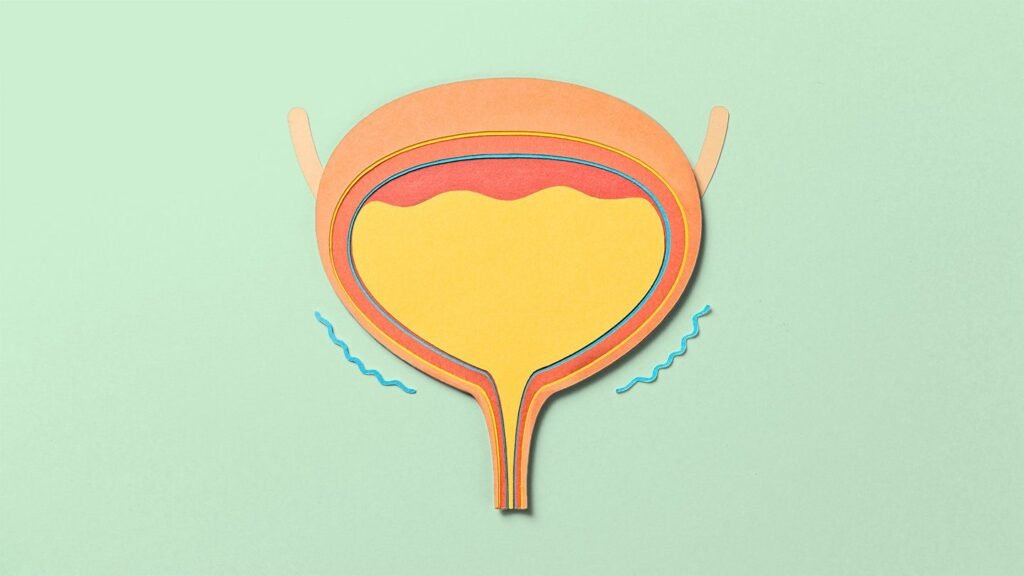The bladder is an essential organ in the urinary system, responsible for storing urine produced by the kidneys before it’s excreted from the body. Maintaining bladder health is crucial for overall well-being, as issues with the bladder can significantly impact daily life. This blog will explore the importance of bladder health, common bladder issues, and tips for keeping your bladder in good condition.
Understanding Bladder Function
The bladder is a hollow, muscular organ located in the pelvis. It stores urine until it’s convenient for the body to release it. The bladder can typically hold about 400-600 ml of urine. The process of urination is controlled by a complex interaction between the muscles of the bladder and the nervous system. When the bladder is full, nerves send signals to the brain, creating the urge to urinate. The muscles then contract, and urine is expelled through the urethra.
Common Bladder Issues
- Urinary Tract Infections (UTIs):
- UTIs are infections in any part of the urinary system, but they commonly affect the bladder. Symptoms include a strong, persistent urge to urinate, a burning sensation during urination, and cloudy or strong-smelling urine.
- Overactive Bladder (OAB):
- OAB is characterized by a sudden, uncontrollable urge to urinate, often resulting in frequent urination and, in some cases, incontinence. It can significantly impact daily activities and quality of life.
- Interstitial Cystitis (IC):
- Also known as painful bladder syndrome, IC is a chronic condition causing bladder pressure, bladder pain, and sometimes pelvic pain. The severity of symptoms varies, and it can lead to frequent urination.
- Bladder Cancer:
- Bladder cancer begins in the cells of the bladder. Symptoms may include blood in the urine, frequent urination, and pelvic pain. Early detection and treatment are crucial for better outcomes.
- Bladder Stones:
- These are hard masses of minerals that can form in the bladder when urine becomes concentrated. Symptoms include severe abdominal pain, difficulty urinating, and blood in the urine.
Tips for Maintaining Bladder Health
- Stay Hydrated:
- Drinking plenty of fluids, particularly water, helps flush out toxins and bacteria from the bladder. Aim for at least 6-8 glasses of water a day.
- Practice Good Bathroom Habits:
- Don’t hold urine for too long, as this can weaken the bladder muscles and increase the risk of infections. Try to urinate every 3-4 hours during the day.
- Maintain a Healthy Diet:
- A balanced diet rich in fruits, vegetables, and whole grains supports overall health, including bladder function. Avoid excessive consumption of bladder irritants like caffeine, alcohol, and spicy foods.
- Quit Smoking:
- Smoking is a significant risk factor for bladder cancer. Quitting smoking can reduce this risk and improve overall bladder health.
- Exercise Regularly:
- Regular physical activity helps maintain a healthy weight, which can reduce the risk of bladder problems. Kegel exercises, in particular, strengthen the pelvic floor muscles and support bladder function.
- Avoid Constipation:
- Chronic constipation can put pressure on the bladder and interfere with its function. A diet high in fiber, along with adequate hydration, can help prevent constipation.
- Practice Good Hygiene:
- Proper hygiene, especially for women, can prevent urinary tract infections. Wipe from front to back after using the bathroom and avoid using harsh soaps or douches that can irritate the urethra.
- Monitor Medications:
- Some medications can affect bladder function. Talk to your doctor about any medications you’re taking and their potential impact on your bladder health.
When to See a Doctor
It’s important to seek medical advice if you experience symptoms like frequent urination, pain during urination, blood in the urine, or persistent pelvic pain. Early diagnosis and treatment of bladder issues can prevent complications and improve your quality of life.
Conclusion
Bladder health is a vital aspect of overall well-being. By understanding common bladder issues and implementing healthy habits, you can maintain good bladder function and prevent potential problems. Remember, if you have any concerns about your bladder health, don’t hesitate to consult a healthcare professional. Taking proactive steps today can ensure a healthier tomorrow.

